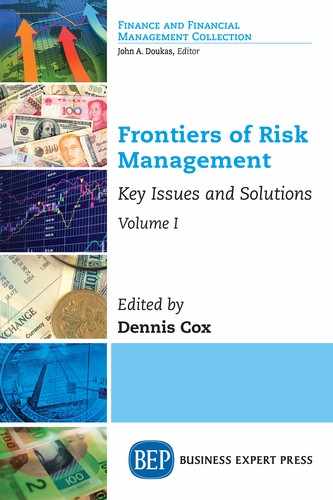The importance of proper risk management, and the consequences of failure to have it in place, have never been greater. Where failure occurs, not just firms but also individuals may face consequences. The FSA’s Director of Enforcement, Margaret Cole, said in 2006 that “Failure to manage risks properly is now, more than ever, likely to result in disciplinary action being brought against individuals as well as firms.” The FSA has power to censure publicly, fine and even ban individuals from working in the financial services, where there are serious contraventions of the FSA rules.
The Frontiers of Risk Management therefore was initially developed to meet an important need and was well timed. The book was comprehensive in its scope, seeking to cover the entire range of financial services risk management. But that is surely appropriate when firms face so many increasing kinds of risk, not least geopolitical risks and the consequences of climate change. Many of the chapters are extremely topical in terms of current regulatory concern, for example, senior management responsibility (see Chapter 2—Strategic Risk: bringing the discussion into the boardroom), hedge funds (see Chapter 7—The risks within the hedge fund industry), and stress testing (see Chapter 17—Stress testing and risk management) are all areas on which the FSA has focused recently.
As the regulator was moving toward an increasingly principles-based approach, there was a greater expectation on firms to work out for themselves how to satisfy their regulatory obligations, and that they would have less certainty that they are doing so. Good risk management can help to reduce the uncertainty, and provide a road map for senior management on the key areas that require greater attention (as well as helpful documentary evidence and an audit trail for the regulator). Firms that do this well will enjoy a regulatory dividend—less attention and scrutiny from the regulators. Those that have poor risk management will endure more intrusive regulatory examination. However, as Tom Fitzgerald points out in his chapter (Chapter 1—The cultural frontiers of total risk management), risk management is not just about satisfying minimum regulatory compliance but is also at the heart of more effective and efficient business management.
Sometimes risk managers are viewed (perhaps not always unfairly) as a specialist breed, inhabiting the dark spaces between compliance and internal audit. This book demonstrates why risk management should be viewed as a core discipline, at the center of an organization. It deserves to be read by a broad audience.
Originally published in 2007 this reissue is after a 10 year period since the original text is now out of print. The original material is largely republished as first issued with minor changes where necessary. With an original objective of being five years ahead of the market, what perhaps is most surprising is that the material remains at the cutting edge of risk management and accordingly of interest to the current risk market.
Dennis Cox
London May 2018
